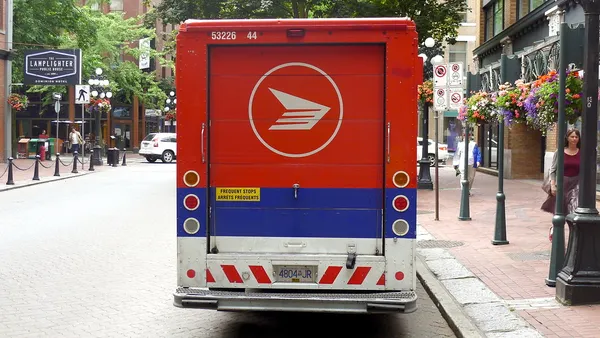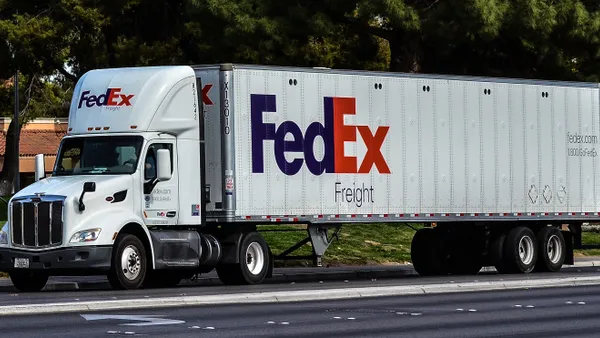Dive Brief:
- Despite consistently increasing fulfillment demands, FedEx and UPS will not hire many more employees during this year's holiday season as the company invests in technology to speed up the process, according to a recent article in the Wall Street Journal.
- Together, the companies will employ an additional 145,000 seasonal workers during the 2016 holidays, which is similar to last year's hiring although pay is expected to increase. Instead of hiring more workers, the article reports, the companies have invested in automation technology at dozens of new sorting centers — although executives reject a direct link between the two forms of investment.
- FedEx will open four new "hubs" and dozens of "automated satellite facilities" to help sort the up to 25 million packages a day it expects to receive during the season. UPS has also invested in sorting software to decrease employee training time and allow employees to focus on non-automated tasks, like processing oversized goods, according to the Journal.
Dive Insight:
Both companies' strategies represent a general shift in distribution strategies spurred by e-commerce: mainly, logistics companies are increasingly reliant in small, local sorting centers serviced by larger warehouses; and are in need of more human and capital resources to meet rising consumer expectations.
Holiday sales are expected to exceed $1 trillion, with nearly $100 billion generated directly through e-commerce in 2016, representing a 3.6% and 17% growth in the figures, respectively, according to Deloitte's annual analysis.
Although the companies are not hiring any additional seasonal workers this year, it is worth mentioning that 37% of UPS' 2015 seasonal employees stayed on as permanent employees after the holiday. Therefore, despite the lack of growth in total new hires investment in labor remained on the rise; a similar increase in capital investment was necessary to ensure total output potential is reached (Y=K*L).
In other words, investments in humans and machines are necessary to keep up with increased demands.













